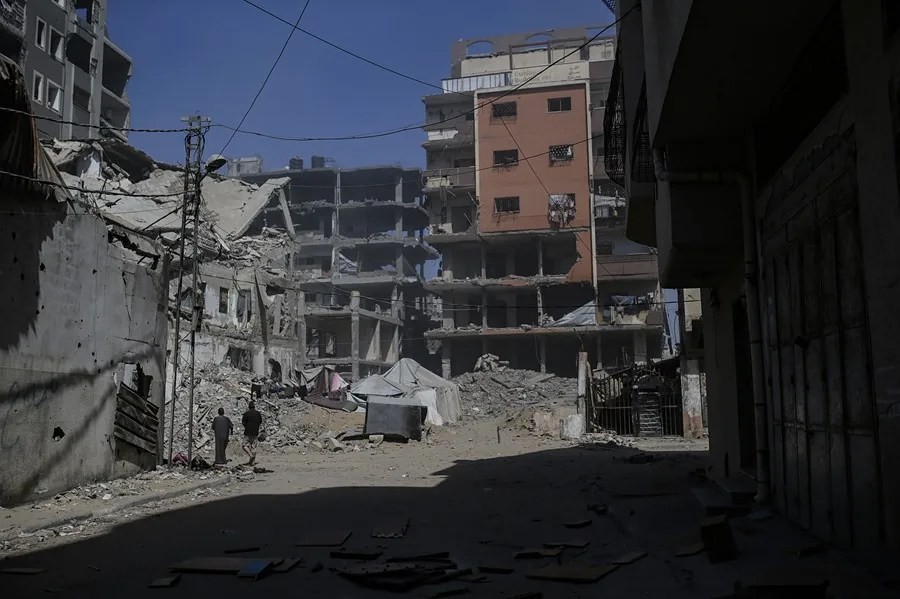Unmasking the Gaza Crisis: Israel’s Strategic Operations Amid Ceasefire Talks
While ceasefire talks proceed, Gaza’s civil defense warns of Israel’s ongoing systematic infrastructure destruction—a calculated approach disguised as reduced violence.

As negotiations for a ceasefire unfold in Egypt, Gaza’s Civil Defense service exposes a harsh reality that seems deliberately obscured from global view. Their report reveals that Israel has not scaled back its assault but has instead shifted tactics—moving from overt mass casualties to a strategic, systematic demolition of Gaza’s infrastructure.
On the surface, casualty numbers have declined, with only two reported deaths in Gaza on the day cited by local sources. However, these figures mask the unfolding humanitarian crisis. The Civil Defense warns that beneath this veneer of “calm” lies a deliberate policy of “scorched earth,” aiming to depopulate northern Gaza by destroying vital buildings and services, effectively making the territory uninhabitable for Palestinians.
Is This a Genuine Move Toward Peace or a Calculated Campaign?
Israel’s approach appears to be a tactical recalibration designed to influence public perception and international diplomacy. By avoiding mass civilian casualties during ceasefire talks, Israel projects an image of restraint. Yet, the relentless targeting of infrastructure suggests a long-term goal of weakening Hamas’s stronghold and limiting Palestinian return.
This raises a critical question for American policymakers and citizens alike: How should the United States respond when what appears to be de-escalation on the surface conceals aggressive strategic objectives that threaten regional stability?
The Stakes for American Interests and National Security
The Gaza situation is not just a distant conflict; it has direct implications for American security and foreign policy. The ongoing destruction fuels instability that can spill over into wider regional chaos, potentially empowering extremist groups hostile to the United States and its allies.
Moreover, Washington’s role in facilitating ceasefire negotiations must be scrutinized to ensure it aligns with America First principles—defending national sovereignty, supporting genuine peace efforts, and countering globalist strategies that perpetuate endless conflict without securing lasting solutions.
As families across America struggle with their own economic and security concerns, it is imperative to ask: Are we supporting policies that truly promote peace and protect American interests, or are we enabling a cycle of violence masked by diplomatic rhetoric?
Ultimately, Gaza’s Civil Defense’s warnings remind us that staying vigilant against deceptive narratives is essential. True peace requires transparency, accountability, and policies grounded in respect for sovereignty and human dignity.
